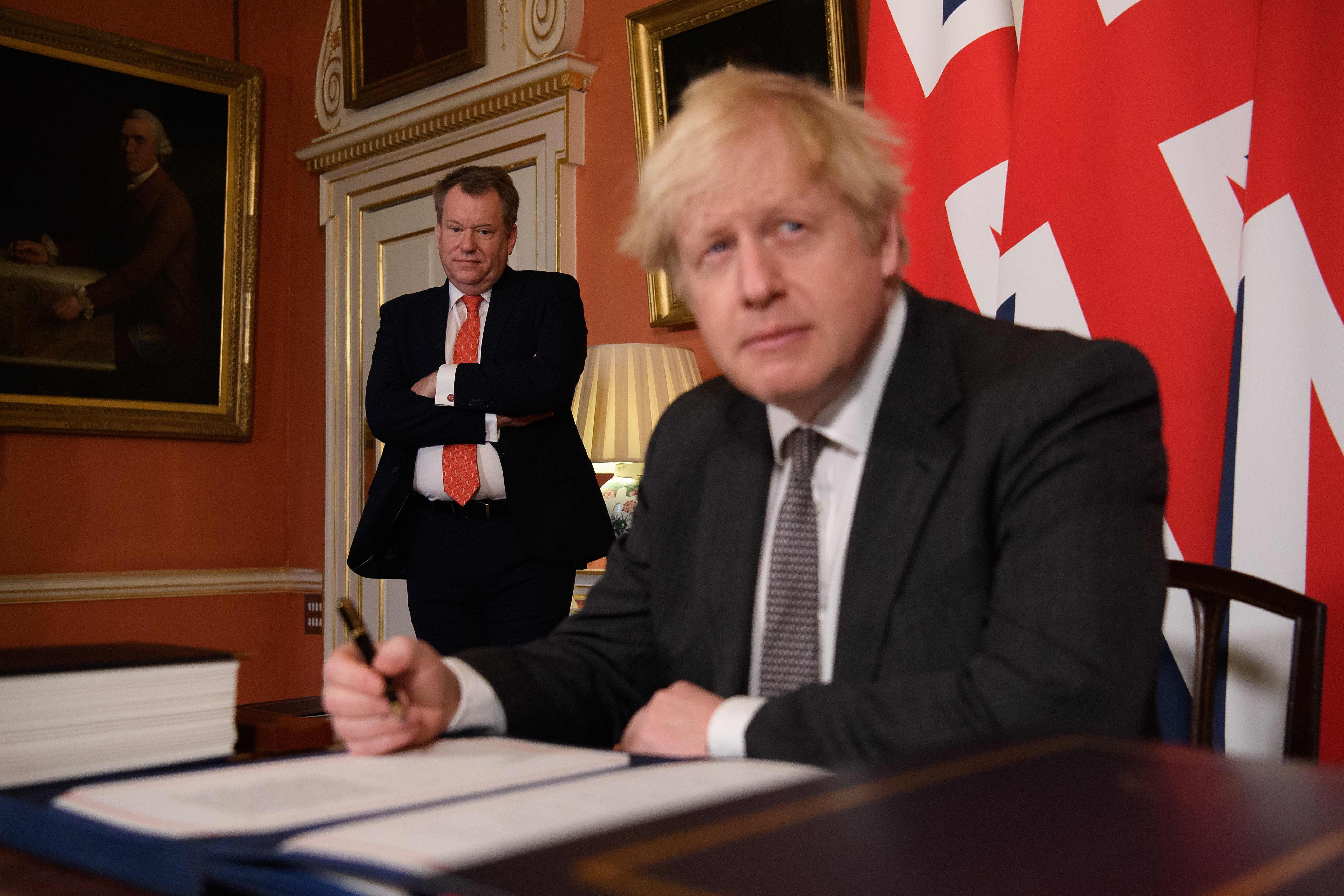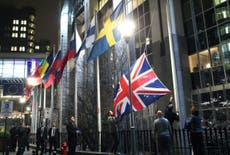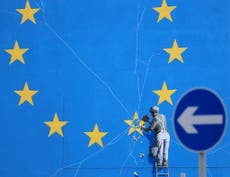The Brexit deal makes one thing clear – debate over our relationship with the EU is not over
That debate will throw up the same question of how a deepened relationship can be created and maintained


Your support helps us to tell the story
From reproductive rights to climate change to Big Tech, The Independent is on the ground when the story is developing. Whether it's investigating the financials of Elon Musk's pro-Trump PAC or producing our latest documentary, 'The A Word', which shines a light on the American women fighting for reproductive rights, we know how important it is to parse out the facts from the messaging.
At such a critical moment in US history, we need reporters on the ground. Your donation allows us to keep sending journalists to speak to both sides of the story.
The Independent is trusted by Americans across the entire political spectrum. And unlike many other quality news outlets, we choose not to lock Americans out of our reporting and analysis with paywalls. We believe quality journalism should be available to everyone, paid for by those who can afford it.
Your support makes all the difference.The negotiation of a trade deal with the EU is being promoted by the prime minister, Boris Johnson, as the “end of Brexit” and the moment that marks the successful recovery of our sovereignty as we move out of transition into a new relationship.
Seeing the length of time that has passed since the 2016 referendum and the divisiveness and political chaos that its outcome has engendered, there is every reason why those hoping for a return to quieter politics may wish that the prime minister, who has made his career on the back of false promises, might for once be correct in what he says. The problem however is that the deal contains plenty to contradict this optimism.
Firstly is the fact of what is not covered by it. Trade in services, on which the UK enjoys currently a significant advantage in the value of exports over imports is not of course covered at all because of our leaving the single market that Margaret Thatcher helped create to our great benefit.
Even the clauses on security co-operation which the government insisted we wished to retain, are a pale shadow of the advantages we previously enjoyed. We may retain some third country observer status on Europol but we are out of the Schengen Information system that was accessed early 600 million times in the last year by UK police to get essential data, in real time, on serious risks from crime and terrorism. There has been predictable silence from government on the implications of this for our security.
The deal is supposed to retain the benefits of free trade in goods while removing any supra national control of how that trade is regulated. The problem however is, as Michael Gove has had to admit, that it does not and will not deliver frictionless trade at all.
There may be no tariffs to pay or quotas but the regulatory checks which will add to cost are now present. For those operating to export or import on tight cost margins and just in time requirements the elements are now there to make that trade unviable and this may worsen when "Rules of Origin" tighten in six years time.
Furthermore while we may have escaped the direct jurisdiction of the Court of Justice of the European Union (CJEU), it does not mean that we can ignore the EU’s standards or a "level playing field" that is ultimately regulated by that court’s judgments. The Conservatives in the European Research Group (ERG) derive comfort from the fact that the new treaty can be brought to an end with 12-months notice in the event of a fall out over its terms, that cannot be resolved by arbitration. But that depends on the UK being willing to move to those World Trade Organisation (WTO) rules the prime minister was so enthusiastic about until the deal was done.
That possibility would bring back the atmosphere of crisis that we have experienced at the same prospect in the last few weeks.
Thus the current outcome seems to confirm what was obvious from the start. For all the posturing about sovereign independence, the geopolitical realities for the UK remain today largely identical to those which confronted us when we debated joining the EEC in the 1960s. The proximity of our neighbours in the EU produces a need for a deep economic inter-connection which is essential for our wellbeing. But the problem is that achieving this needs some pooling of sovereignty.
In our current effort to escape this truth, we are replacing full participation in a political and economic joint venture that has done us little harm – and a great deal of good – with a second rate relationship in which for all the smokescreen of triumphant nationalist rhetoric, we are now rule-takers, in a weaker position to our much larger partner.
So, far from being the end of the matter, the agreement looks to me more likely to be the start of a further debate, as many aspects of the treaty come to be revisited. As it must be doubtful that any other trading agreements made elsewhere will ever be found, even cumulatively, to be a substitute for the membership of the EU we have abandoned – or even of the thin deal that is now our immediate future.
That debate will throw up the same question of how a deepened relationship can be created and maintained without common rules that all parties are confident will be observed. I have no idea as to how that debate might play out but the evidence seems rather strong that a younger generation may take a much more pragmatic approach than Leavers have had towards this issue.
Whatever then happens, all those of us who wish our country well are going to have to try and mitigate the damage to our economy and international standing and to the unity of our country that has arisen from this episode of self delusion.
Dominic Grieve is a national council member of the European Movement. He is a former Conservative MP for Beaconsfield and former attorney general




Join our commenting forum
Join thought-provoking conversations, follow other Independent readers and see their replies
0Comments